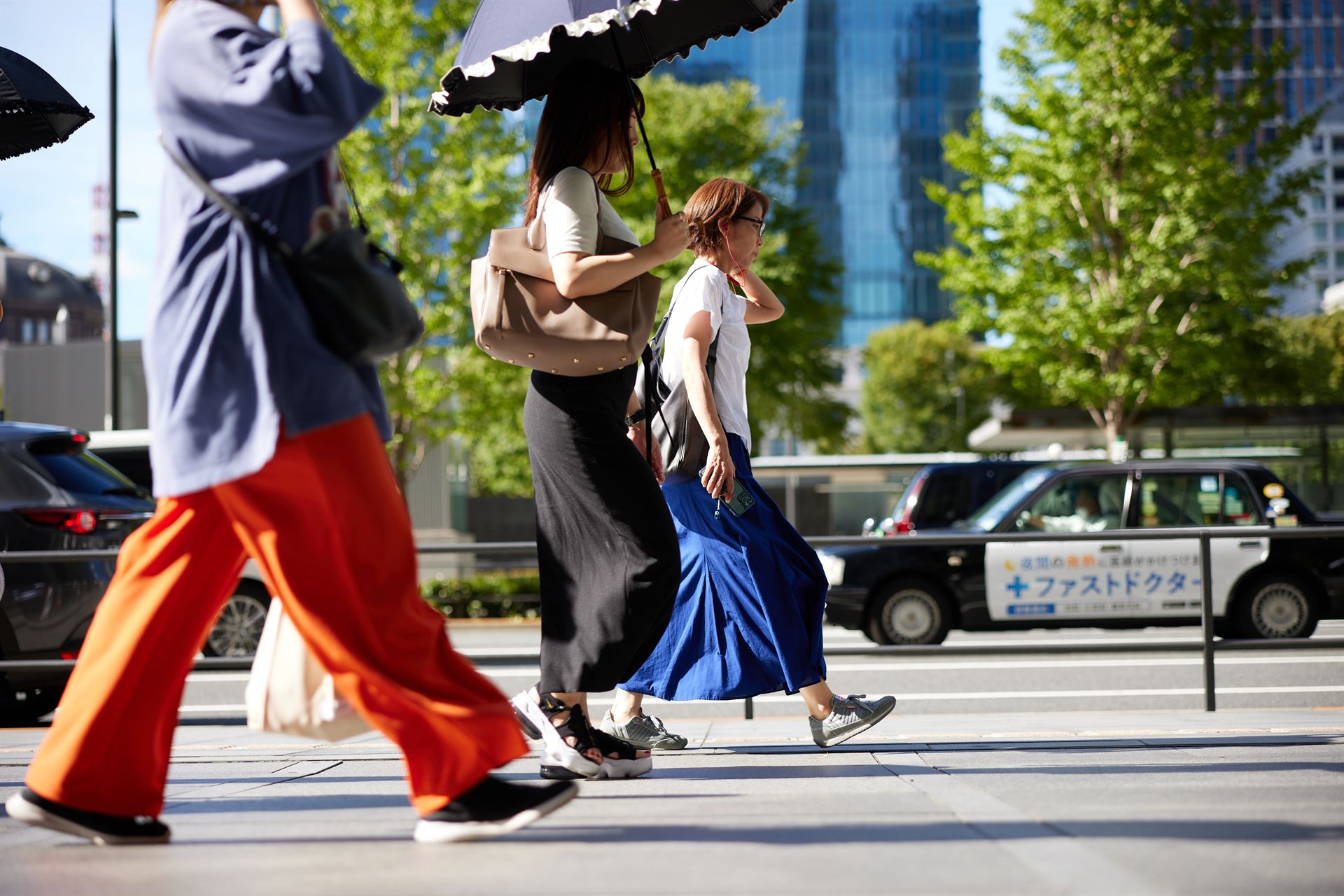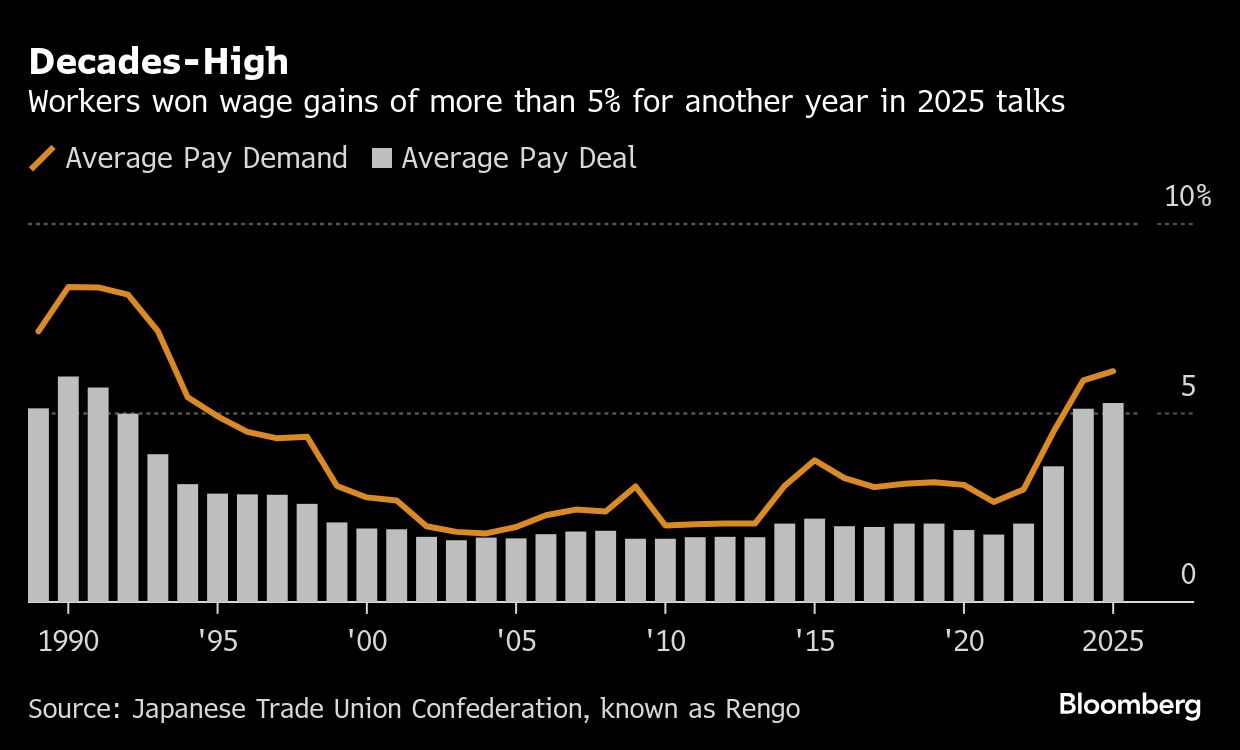
Japan’s annual wage negotiations concluded with the largest pay increase in 34 years, an outcome that supports the central bank’s view that a cycle of higher wages and prices is emerging.
Workers at 5,162 companies affiliated with the nation’s largest union federation Rengo secured an average wage increase of 5.25 percent in this year’s negotiations, according to the final update of pay deals announced by the union group on Thursday. While the figure came in lower than the preliminary 5.46 percent reported in March, it still marks the highest growth rate since 1991. Rengo represents approximately 7 million workers, or around 10 percent of Japan’s labor force.
ALSO READ: Average rice price in Japan drops for 1st time in 3 weeks
Robust wage gains help back the case for the Bank of Japan to raise interest rates further, as the central bank weighs the appropriate timing of its next move amid global economic uncertainty. Governor Kazuo Ueda has recently signaled a cautious stance due to a lack of clarity over US President Donald Trump’s trade policies, emphasizing the need to closely monitor data.
The central bank’s nine-member policy board is scheduled to deliver its next decision at the end of the month, with markets broadly expecting rates to remain unchanged at 0.5 percent.

Thursday’s report showed that workers at smaller firms achieved a wage increase of 4.65 percent, up from 4.45 percent in the corresponding tally last year. The gain was the largest in 33 years, and the wage gap with larger counterparts narrowed to 0.6 percentage point, compared to a 0.65 percentage point difference last year.
“There’s no doubt that unions representing workers at smaller firms worked hard, and I believe the momentum for wage increases is steadily spreading,” said Akira Nidaira, executive director at Rengo. He expressed disappointment that smaller unions weren’t able to achieve 5 percent, but noted that firms are still probably struggling to pass on costs.
READ MORE: Report: US pressed Japan to raise defense spending to 3.5% of GDP
For this year’s talks, Rengo focused on boosting pay at smaller enterprises, setting a 6 percent wage hike target for them, higher than the 5 percent overall goal. In Japan, nearly 70 percent of employees work for small and mid-sized firms, making their pay increases critical to national wage trends.
The report also showed that the information and publishing sectors saw the largest pay increases at 5.65 percent, driven in part by a tight labor market. Nearly 70 percent of companies in the information services industry reported a shortage of regular workers, the severest labor crunch among industries surveyed in a Teikoku Databank report released in May.
READ MORE: Japan to hold upper house election on July 20, government spokesperson says
Despite historic nominal wage gains, rising prices continue to erode purchasing power. The nation’s key inflation gauge has stayed at or above the BOJ’s 2 percent target for three years, meaning that real wages only grew during four months within that period.
Persistent inflationary pressures have also dampened consumption, gradually eating into corporate profit margins and limiting businesses’ ability to raise wages. That could disrupt the virtuous cycle of wage and price increases that policymakers are aiming for.
Ahead of the upcoming national election later this month, Prime Minister Shigeru Ishiba’s administration has pledged policy support to address both inflation and sustained wage growth. To ease the burden of rising prices, the ruling party announced a 20,000 yen ($139) cash handout per adult, with additional support for households with children. On the wage side, it promised support for labor-saving capital investment, setting a target to raise average annual wages by 1 million yen per person by fiscal year 2030.
As a counterproposal, opposition parties, including the Rengo-backed Constitutional Democratic Party and Democratic Party for the People, are advocating for a temporary cut to the consumption tax.


